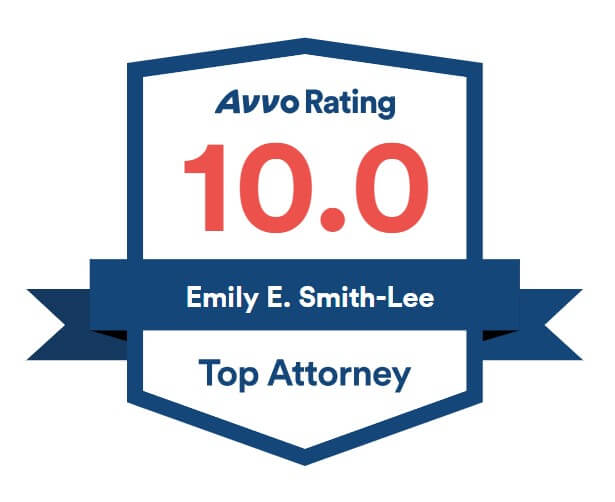Maximizing the Protection of Your Business: How to Incorporate in Massachusetts
The First Crucial Step: Incorporating Your Massachusetts BusinessMany new business owners have questions about creating a business entity. Why do it, what kind of legal entity is most appropriate, and how to get it done. This is just one of the legal issues start ups face, but it should be first on your list.
Why Choose Incorporation?Operating under a "doing business as" (DBA) name isn't illegal, but there are compelling reasons to establish either an LLC or a corporation.
1. Liability Protection: When you operate under a DBA, you may be personally liable for your business's debts. Most entrepreneurs opt for creating a legal entity to shield their personal assets from such liabilities. 2. Brand Protection: Incorporation safeguards your business name and identity. Once you've established a legal entity in your state, no one else can use the same or a similar name. While full brand protection involves trademark registration, incorporating is an essential initial step. 3. Marketing and Credibility: Adding "Inc." or "LLC" after your business name can enhance your marketing efforts and provide credibility to potential customers. It signifies that your business is backed by a formal legal structure. LLC vs. S Corporation: Understanding the DifferencesWhen considering incorporation, you have several options, with Limited Liability Companies (LLCs) and S Corporations being popular choices. Here's a brief overview of their key distinctions:
LLC: An LLC offers "pass-through" taxation, meaning you report business income on your individual tax return. This form provides liability protection. S Corporation: Like an LLC, an S Corporation provides pass-through taxation and liability protection. However, you must meet specific criteria under the U.S. Tax Code to qualify for S Corporation status. While both options offer legal and liability benefits, tax considerations may vary. It's advisable to consult with an accountant to determine the best fit for your business. Incorporation Process: A Simple GuideSingle Owner Businesses:
If you're the sole owner of your business, forming a single-member LLC in Massachusetts is relatively straightforward:
While you may choose to file independently, it's wise to have an initial consultation with a business lawyer who can identify potential legal issues. Partnerships Require Professional Advice: If you have a business partner, professional advice is crucial before forming your business structure and filing articles of incorporation. Addressing decision-making, profit-sharing, loss allocation, and interest transfer early can prevent future conflicts. |
We're Here to Help.OR
|
Questions About Incorporating Your Business?
Our Solutions Roadmap is a quick and easy way to share the details of what you are facing and receive preliminary feedback from a member of our team. Use the button below to get started- it is 100% confidential and 100% free.
Maintaining Your Legal Entity
Your LLC or S Corporation has ongoing reporting requirements to maintain its legal status. This typically involves filing an annual report and paying the necessary fees to the Commonwealth of Massachusetts. Updates are required if any information in your initial articles of incorporation changes.
Understand What is Public and What is Private
While much of your articles of incorporation information is public, certain documents remain confidential. For instance, operating agreements in LLCs and details of all owners are not publicly disclosed, preserving your business's privacy.
An important chance in 2024 is the federal Corporate Transparency Act. This does not make the ownership information a matter of public record, but it will require disclosures and updates to the U.S. Treasury Department. There may be significant consequences for failing to comply. There are also some advantages to incorporating before January 1, 2024.
An important chance in 2024 is the federal Corporate Transparency Act. This does not make the ownership information a matter of public record, but it will require disclosures and updates to the U.S. Treasury Department. There may be significant consequences for failing to comply. There are also some advantages to incorporating before January 1, 2024.
Meet Our Business Attorneys

Emily Smith-Lee is the owner and founder of slnlaw. She is a 1996 graduate of Boston College Law School. She was previously a partner at the Boston office of a large international firm, where she worked for thirteen years with a focus on business litigation. In 2009, she started the firm that since became slnlaw, and has grown it from a solo practice to a five-attorney firm with multiple practice areas. She has been recognized as Massachusetts Superlawyer each year since 2013, and in 2018 earned recognition as one of Massachusetts Lawyers Weekly's Lawyers of the Year. She has written a book on employment law: Rules of the Road, What You Need to Know About Employment Laws in Massachusetts, and helped hundreds of small business owners with contracts, business transactions, employment law advice, business incorporation, and risk management. She has also litigated business disputes in state and federal courts.

Rebecca Rogers: Rebecca is a 2006 graduate of Boston College Law School, and has worked with slnlaw since 2013. She previously worked as an intellectual property litigation attorney for Fish & Richardson in Boston, Massachusetts, and clerked for the Massachusetts Supreme Judicial Court. Rebecca has helped clients with business contracts, employment contracts, and employment law advice.

Jenna Ordway: Jenna is a 2013 graduate of Quinnipiac Law School, and also earned an LLM in Taxation from Boston University in 2015. She has been affiliated with slnlaw since 2011, first as a law clerk and then as an attorney. Jenna has been recognized since 2019 as a "Rising Star" by Massachusetts Superlawyers. Jenna has helped many small business owners with simple and complex business incorporation, contract review, advice and analysis regarding business disputes, employment law advice, and advice about business succession considerations as part of estate planning.

Elijah Bresley: Eli is a 2014 graduate of Seton Hall Law school, and has worked with slnlaw since 2020. He previously worked for a boutique employment law firm outside of Boston, and then for the Labor and Employment department of a large Boston firm. He also spent a year clerking for the judges of the Superior Court in Hartford, Connecticut. Eli has helped our small business clients with employment law advice and defense of employment-related lawsuits in MCAD and state and federal courts.

Sharleen Tinnin: Sharleen is a 2010 graduate of Northeastern University School of Law, and has been with slnlaw since 2023. Prior to joining slnlaw, she worked with King, Tilden, McEttrick & Brink, P.C. on complex civil litigation matters. She previously worked for the United States Department of Justice, and received an "Excellence in Justice" award in 2017. Sharleen has helped clients litigate business disputes in state and federal courts, and advised business owners about succession considerations as part of their estate planning.
How We Can Help
At slnlaw, we provide expert guidance on incorporating your business in Massachusetts, ensuring liability protection and proper legal structure. Schedule a free consultation today. You can use the button below to schedule a free consultation, or give us a call at (781) 784-2322.
|
Emily Smith-Lee Rated by Super Lawyers loading ... |
Jenna Ordway
Rated by Super Lawyers loading ... |


